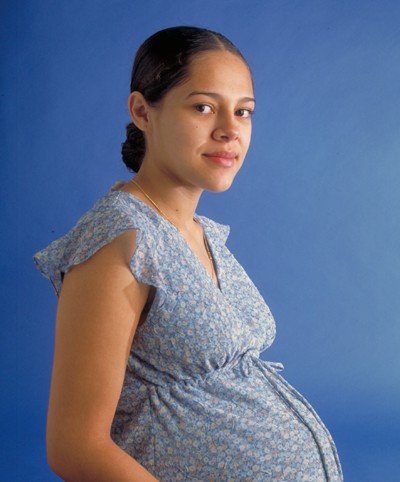Serotonin reuptake inhibitor (SRI) antidepressants may affect platelet aggregation and thus may increase the risk of bleeding. Several studies have sought to determine if exposure to SSRI antidepressants in late pregnancy is associated with an increased risk of postpartum hemorrhage.
The most recent study was a population-based cohort study including 225,973 women with a total of 322,224 pregnancies from British Columbia, Canada. Women were categorized according to whether they had late-pregnancy exposure (at least 15 of the last 30 days of pregnancy), mid-pregnancy exposure (in the last 5 months of pregnancy but not the final 30 days), or no exposure to antidepressants.
Late-pregnancy exposure to serotonin–norepinephrine reuptake inhibitors (SNRIs) was associated with a 1.6- to 1.9-fold increase in risk of postpartum hemorrhage. In contrast, there was no significant relationship between late-pregnancy exposure to selective serotonin reuptake inhibitor (SSRI) and risk for postpartum hemorrhage. Mid-pregnancy exposure to either SSRI or SNRI was not associated with an increased postpartum hemorrhage risk.
It is unclear why the results seem to differ between SNRIs and SSRIs. (This difference was also seen by Palmsten et al.) Because the majority of women taking an SNRI were taking venlafaxine (98%) or desvenlafaxine (1%), an isomer of venlafaxine, it is not possible to rule out an effect that is specific to venlafaxine. So is there something different about venlafaxine? There may be some undefined difference between the women who take venlafaxine versus those that use SSRIs, factors which may contribute to risk for postpartum hemorrhage. The researchers also noted that women on venlafaxine were more likely to have hypertension (a potential side effect of venlafaxine) than women taking SSRIs (12.8% vs. 7.0%) ; however, this did not account for the difference in risk between the two groups.
The Take-Home Message
The findings from this study are similar to those observed in a previous report from Palmsten et al (2013); however, other large studies conducted in Norway and Canada have documented no increase in risk of postpartum hemorrhage (Lupattelli 2013, Salkeld 2008) While postpartum hemorrhage is a potentially serious complication, the data suggest that the risk of postpartum hemorrhage, if we assume these findings are correct, appears to be slightly increased in women taking SRIs near the time of delivery.
Given the inconsistencies across these findings and the relatively small increase in risk observed in these studies, we do not have compelling evidence to change our practices regarding the use of SRIs and other antidepressants during pregnancy. Obstetricians, however, should be alert to the possibility of an increased risk of PP hemorrhage in this population, so that hemorrhage, should it occur, may be managed aggressively, with the goal of minimizing maternal morbidity.
Ruta Nonacs, MD PhD
Postpartum Hemorrhage and Use of Serotonin Reuptake Inhibitor Antidepressants in Pregnancy.
Hanley GE, Smolina K, Mintzes B, Oberlander TF, Morgan SG.
Obstet Gynecol. 2016 Mar;127(3):553-61.







Leave A Comment